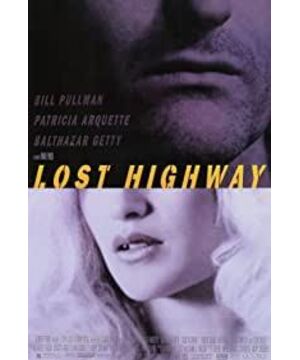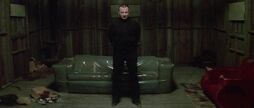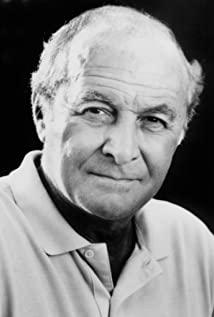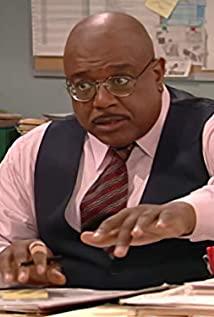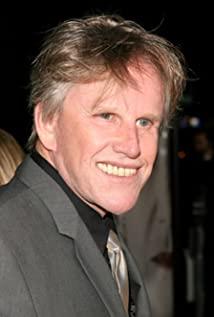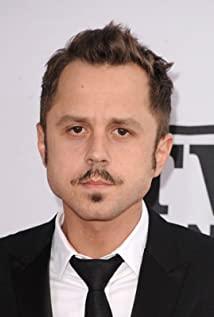—from objective description to subject description
is from Hitchcock's "Psycho" to David. Lynch’s "Lost Highway" is represented in my brain concept. Objectively speaking, I am not sure whether there is such a special category as "psychological movies".
But one thing is clear. Since the emergence of such concepts as Freud's psychoanalysis, schizophrenia, and Messmel hypnotism, there have been more directors who are keen on curious and grotesque content. A kind of new good subject that can be used for cooking.
In terms of content, the classic works of the two masters both use psychopaths with split personality as the protagonists: the innkeeper who constantly switches between "self" and "mother" in Psycho, and the mastermind in Lost Highway. A wife killer from the dual perspectives of a musician and a car repairer as an accomplice. But the way of telling the story is completely different. The former continues the classic mode of a suspense detective film, and the "personality split" only exists as an element that adds color to the content, while the latter not only makes the plot content weird The introduction of split personality behaviors has achieved formal innovations that match the special content in film techniques, narrative methods, and lens use.
In the plot of Psycho, Hitchcock continues his narrative style (or the narrative style of that era) that he has always been accustomed to, and always asks to give fragments and seemingly suspicious clues in the murder process of the killer, and then It is the logical but contradictory inference of the detective, and then the detective cooperates with the good people in the difficult situation to explore the secret, and finally digs out the objective truth to find a reasonable scientific explanation.
The image of Lost Highway completely brings the audience into a dreamlike unreal world. David Lynch’s genius imagination allows him to stop following the “objective world” step by step and follow the order of experience. The law of the story plunges into the subjective split perspective of the mental patient, and his morbid and unstable mental state provides a metaphysical basis for the turbulent lens route. As a result, it looks like entering a distant mythical world on the surface-the characters no longer have the same identity but can change arbitrarily (resulted by split personality, personality conversion), and the spatiotemporal plot no longer has continuity (memory) Caused by faults), the metaphorical correlation between different people and things (the suggestion given by the false memories created by the underlying consciousness that connects different personalities)... Since the birth of the movie, the lens has been a careful observation The status of objective tools in the real world has never been truly impacted. Even in the director profession, there are some sentimentalists, but their expression of emotions has not been separated from the conventional way of objective operation of the lens, and the experience of emotions is still established. On the basis of an objective plot composed of facts; but here with David, the lens here is no longer a “eye of God” on which we can peek into the objective real world and have absolute trust in it, not to mention the lens It has become the "colored glasses" of a split personality under different memory structures in different time and space. We can’t be satisfied with the fact that the inert animals sitting in front of the screen like before can grasp the reality by relying only on effective stimuli, because we can no longer tell which is the reality, and the relationship between them is so frantic and messy. .
But it would be a big mistake to think that Lost Highway has completely abandoned the vision of objective reality from this. Merely works full of uncertainty and chaotic information can satisfy the destructive desires of those hypocritical postmodernists. In the movie, in some rare cases where it is obvious that the protagonist’s multiple personalities are not present, the circumstances of other people express such key hints, and these few reliable information can be used to communicate with the protagonist. The plot under the subject's field of vision is compared, and the possibility of clarifying the lines is given (only "possibility" is said because after all, there is no guarantee that most people can understand the film). The greatest thing about this film is also here. The use of image materials that seem to be inconsistent and frantic, precisely weaves a murder plot that can achieve logical self-consistent (even if such a plot is actually more meaningful. It is metaphysical), and of course additional premises need to be added-we should try to imagine ourselves as the split personality of the mentally ill patient to give a reasonable explanation for the broken image material.
The truly great creative power of imagination is such that it can not only achieve the destruction of appearance freely and wildly, but at the same time such a premeditated destruction can also stimulate the imagination of the audience to logically reorganize the broken materials. In such a process, the greatest tension between imagination and reality can be realized, and a good audience can experience the similar feelings of the creator in a certain sense in front of such works.
From the perspective of film comparison, from the perspective of content inheritance alone, from Psycho to Lost Highway, the objective description of the behavior of the split personality in the psychology film is completed to the subjective description of the "split world" under the subjective field of view. As far as the understanding of the film’s existence is concerned, the lens has also achieved a breakthrough from being an objective narrative tool for storytelling to a "phenomenal eye" that presents the spirit of the subject.
View more about Lost Highway reviews


